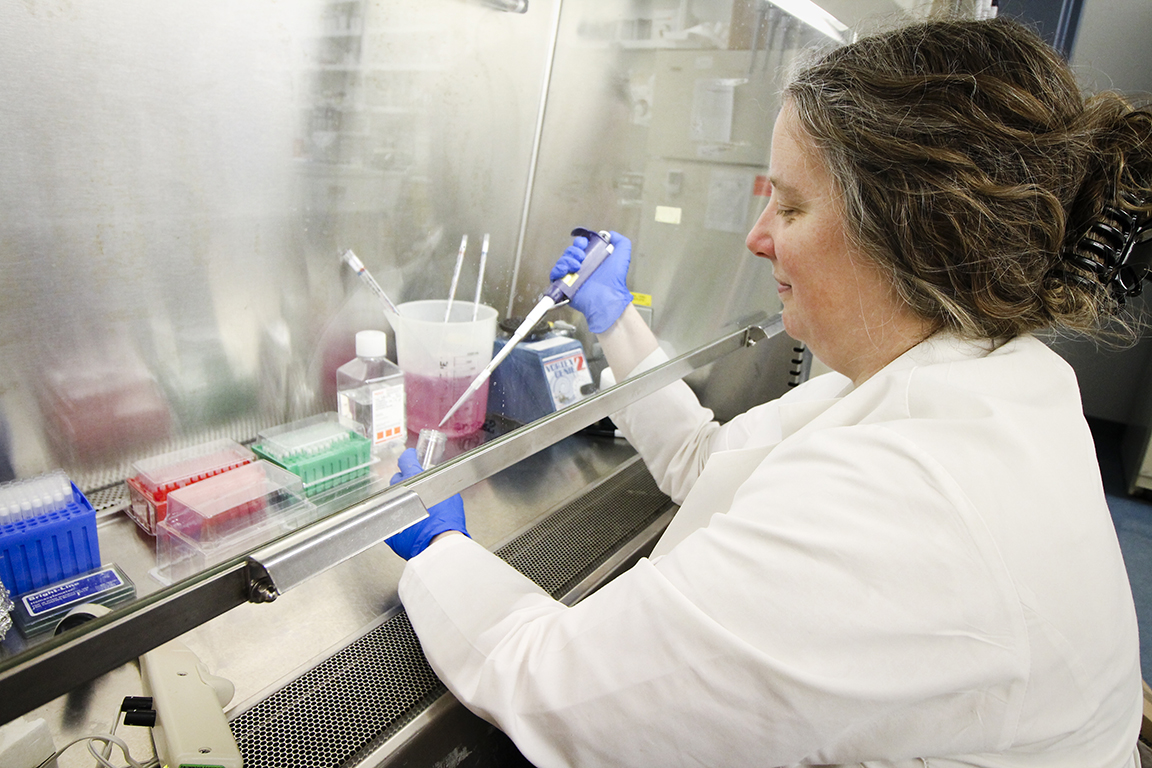Search for a Zika Vaccine: Saint Louis University Begins Clinical Trial
Saint Louis University’s (SLU’s) vaccine center will soon begin a phase 1 safety trial of an investigational vaccine designed to prevent Zika virus infection, which can cause devastating birth defects and other health problems.
Funded by the National Institutes of Health, SLU will test a vaccine candidate made from Zika virus that has been inactivated to prevent infection. The investigational vaccine, called ZPIV, is being developed by the Walter Reed Army Institute of Research (WRAIR), in partnership with the National Institute of Allergy and Infectious Diseases (NIAID) and the Biomedical Advanced Research and Development Authority (BARDA), part of the Office of the Assistant Secretary for Preparedness and Response (ASPR) at HHS. Parallel studies with ZPIV will be conducted by WRAIR, Beth Israel Deaconess Medical Center and NIAID’s Vaccine Research Center.
A clinical trial will be conducted at SLU’s Center for Vaccine Development. Another trial will start in early 2017 at a research site partnering with SLU in Puerto Rico, where local transmission is widespread.
SLU’s trial is recruiting 90 healthy adults ages 18 to 49 for the phase one clinical trial in St. Louis. Volunteers for the double-blind, placebo controlled trial will be followed for about one year after they are vaccinated.
We need a vaccine to protect people from this emerging infectious disease that can cause microcephaly and other severe brain defects in babies."
Sarah George, M.D.
The vaccine candidate that will be tested is modeled after a licensed vaccine WRAIR developed for Japanese encephalitis, which, like Zika, is in the flavivirus genus of viruses and is transmitted by mosquitoes, said Sarah George, M.D., a flavivirus expert and principal investigator of the trial.
“There is no medical intervention to prevent a pregnant woman who has Zika from transmitting it to her unborn child. We need a vaccine to protect people from this emerging infectious disease that can cause microcephaly and other severe brain defects in babies,” said George, who is an associate professor of infectious diseases at SLU.
Zika is spread by Aedes mosquitoes, which also transmit dengue, chikungunya and other viruses. Zika can also be sexually transmitted. The most significant health problems related to Zika infection affect unborn babies, whose mothers contract the virus during pregnancy. The virus may be deadly for these babies, who also are at risk of developing serious complications such as microcephaly (abnormally small brains) and other problems.
SLU is eligible to conduct the research because its Center for Vaccine Development is one of nine Vaccine and Treatment Evaluation Units selected in 2013 by the National Institutes of Health to study vaccines of the future that will protect people from infectious diseases and emerging threats. The project is funded under Contract No. HHSN272201300021I. The federal government has funded vaccine research at SLU since 1989. More information about the Zika clinical trial is available on clinicaltrials.gov.
Established in 1836, Saint Louis University School of Medicine has the distinction of awarding the first medical degree west of the Mississippi River. The school educates physicians and biomedical scientists, conducts medical research, and provides health care on a local, national and international level. Research at the school seeks new cures and treatments in five key areas: infectious disease, liver disease, cancer, heart/lung disease, and aging and brain disorders.
To learn more about the vaccine research being conducted at Saint Louis University, call (314) 977-6333 or email vaccine@slu.edu.


















